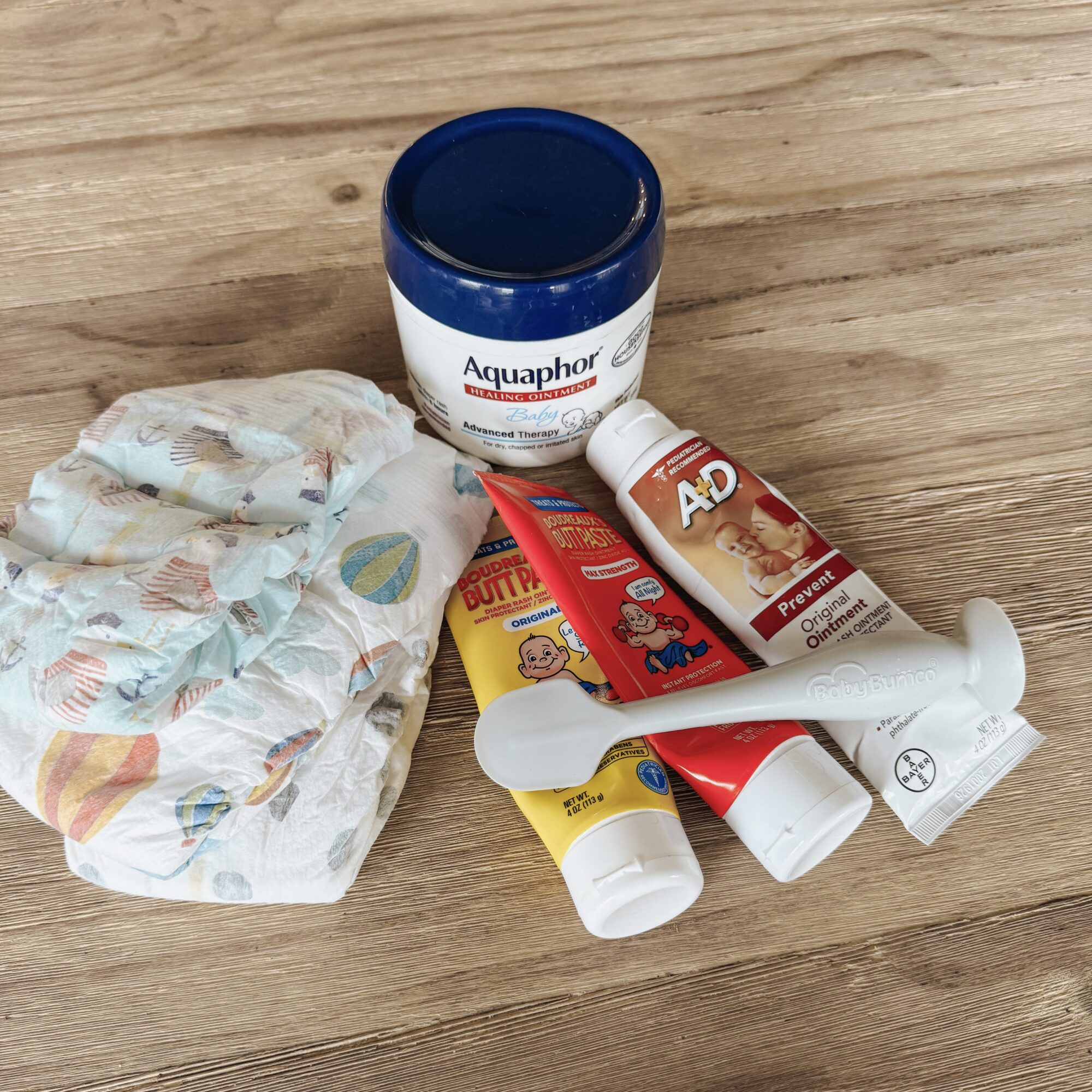When my daughter was born, she had incredibly sensitive skin that required me to modify many of the products we used, even down to the detergent for my own clothes. But one thing she weirdly never struggled with? Diaper rash. It's a common problem for so many babies but luckily, not mine. And I attribute that to the fact that I've been super selective with the diapers we use – choosing a brand that is highly absorbent and made with safe ingredients.
Flashback to when my first child was a newborn, I remember the terrible diaper rashes he had. It was a painful process of diaper trial and error, but when I found ‘the one', the diaper rashes stopped. It was a revelation that led me to understand, and become embarrassingly passionate, about the importance of selecting the right diaper.
So, I decided to interview an expert on the topic: Dr. Sheilagh Maguiness, a double board certified dermatologist and pediatric dermatologist, and Associate Professor of Dermatology and Pediatrics at the University of Minnesota. Here's her advice on preventing diaper rash.

What causes diaper rash?
According to Dr. Sheilagh, “There are actually many types of skin rashes that can show up in the diaper region during infancy. The most common of these is irritant contact dermatitis. This type of diaper dermatitis occurs on the areas of the skin that are most in contact with the diaper – the convex areas like buttocks and genitals. Irritant diaper rash is due to skin barrier breakdown and subsequent inflammation from prolonged contact with urine and stool. Once the skin barrier is red, inflamed and compromised, bacteria and/or yeast organisms can start to overgrow, leading to more problems and possible secondary infection.”
She added that “If your child is prone to dry, sensitive skin and eczema, they are more likely to develop diaper rash because their skin is more likely to develop irritation from an altered skin barrier. Preterm infants with an immature skin barrier are very vulnerable to diaper rashes. In addition, a gastrointestinal illness (ie: diarrhea) or situations (ie: teething) where there is more urine or stool production, can bring on an unwanted diaper rash.”

The role of diaper selection in preventing diaper rash
When it comes to preventing diaper rash, the importance of selecting the right diaper cannot be overstated.
As Dr. Sheilagh puts it, “A very absorbent diaper is extremely helpful in wicking fluids away from the skin.” But, the absorbency isn't the only factor you should be considering. “The most important features for me as a pediatric dermatologist are the following: fragrance-free, lotion-free, dye-free (especially avoid dyes on the inner lining of any diaper), and overall make a claim of hypoallergenic.”
The only diapers I'll use: Coterie
Enter Coterie diapers. After trying and researching a myriad of non-toxic diaper brands like Millie Moon, Dyper, Honest (you can read about my past experiences here and here), I can confidently say that Coterie checks all the boxes.
They are ultra-absorbent (like the best I tested by far), fragrance-free, lotion-free, dye-free, Total Chlorine Free (very few brands can say this) and hypoallergenic. Plus, they feel like cashmere, not your typical crinkly plastic diaper. I mean, what's not to love?
IMO Coterie not only meets but surpasses the criteria Dr. Sheilagh has set for a good diaper. I've seen a significant decrease in diaper rashes since switching to Coterie!
Try Coterie Diapers: Get 20% off your subscription NEWMODERNMOM

Other diaper rash prevention strategies
Dr. Sheilagh recommends parents also be sure to “change the diaper anytime it is wet, typically every 2-3 hours throughout the day.”
And keeping baby’s skin well moisturized is key! Dr. Sheilagh encourages “bathing your infant frequently (daily to every other day) and using a fragrance-free moisturizer head to toe right after the bath to lock moisture in the skin.” And avoid irritants like products with fragrance or essential oils in these products just like you want to with diapers.
If your baby does appear to have extra sensitivity, it also doesn’t hurt to take a more proactive approach by “adding extra barrier ointment made of petroleum jelly or zinc oxide with every diaper change,” says Dr. Sheilagh. This combo was also my go-to for Caden to treat his diaper rash before switching to Coterie.

Treating diaper rash
If your baby does get diaper rash, there are some clear steps to take to treat it. Dr. Sheilagh's recommended process: “The first step in addressing an irritant diaper rash is to bathe your infant regularly (lukewarm, immersion tub bath), limit any possible irritants you might be exposing them to by keeping soap moisturizer and diaper wipes fragrance free and hypoallergenic.”
“Next, frequent diaper changes are a must, because sitting for long periods in urine and stool is the most common cause for irritant diaper dermatitis.”
She also advises on carefully selecting the wipes you're using. Dr. Sheilagh advises that strict water-based wipes are best (my favorite are Coterie), but if you don't have any on hand “you can make your own at home for temporary use by sealing some soft cotton make-up wipe pads in water in a ziploc bag.”
Say Goodbye to Diaper Rash with Coterie
Coterie diapers are not just any diapers, they are the gold standard. They are the epitome of dryness, designed with a super absorbent core that helps prevent any moisture from irritating your baby's skin. They are a must-have for every new parent.
Get 20% off your purchase of Coterie Diapers with code: NEWMODERN24





